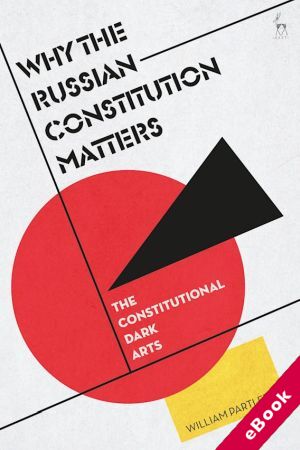We are now closed for the Christmas and New Year period, returning on Monday 5th January 2026. Orders placed during this time will be processed upon our return on 5th January.

The device(s) you use to access the eBook content must be authorized with an Adobe ID before you download the product otherwise it will fail to register correctly.
For further information see https://www.wildy.com/ebook-formats
Once the order is confirmed an automated e-mail will be sent to you to allow you to download the eBook.
All eBooks are supplied firm sale and cannot be returned. If you believe there is a fault with your eBook then contact us on ebooks@wildy.com and we will help in resolving the issue. This does not affect your statutory rights.
This book challenges the common view that the Russian Constitution is a sham or a reflection of Russia's authoritarian past. It instead shows that the Russian Constitution was a product of the constitutional 'dark arts', an increasingly common constitutional practice that seeks to guarantee liberal democracy and individual rights in a system of highly centralised power.
Over time in Russia, the centralisation of power in the president has undermined the constitution's democratic and rights protections. This Russian experience matters for three reasons.
First, it shows that Russian authoritarianism is neither the personal creation of Vladimir Putin nor a natural reflection of Russian history. It is instead the product of a centralised constitutional system. A democratic Russia is possible but requires more than just Putin leaving office - it also requires breaking with Russia's constitutional commitment to centralisation.
Second, it demonstrates the role that the constitutional dark arts play in populist authoritarianism around the world. In these contexts, centralisation allows one office to claim popular legitimacy and dominate politics while (generally falsely) also claiming to respect individual rights and democracy.
Third, it reveals that democratic constitutions are more than legal texts enforced in court. They are more fundamentally political texts that create a balanced state with political checks on the centralisation of political power. These checks and balances do not just limit state power and protect rights; they also enable the state to better understand and advance the general well-being of its citizens.
This book therefore provides critical guidance to those involved in building democracy in a post-Putin Russia. It is also important to those seeking to better understand the role that constitutions play in shaping both authoritarian and democratic politics.